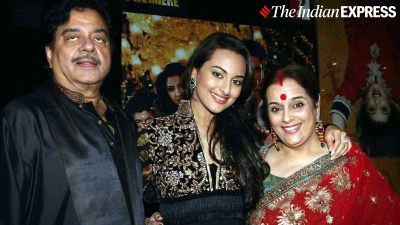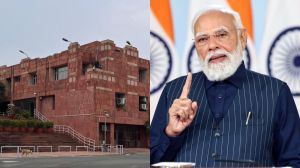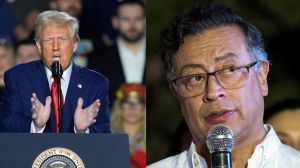Reflections of a 145;veteran146; political pundit
This column turns 20 this year. During this period, among the things that haven8217;t changed: our reverence for the VIP and our weakness for the demagogue

Fifth Column turns 20 this year, which makes me a 8216;veteran8217; political pundit, and this scary thought occasionally puts me in a reflective mood. Like other 8216;veterans8217; I gaze backwards at the years gone by and the changes that have happened since this column first appeared in the pages of this newspaper in 1987.
The prime ministers who have come and gone, the politicians who have disappeared into history8217;s footnotes, and the economic changes that have turned India in 20 years from a poor, developing country into an emerging economy. As I am writing this piece on a perfect, early summer8217;s day, with the sounds and scents of birds and gardens wafting up to my humble abode, and in a week when the most compelling news event was Liz Hurley8217;s Rajasthani wedding, I feel I can indulge my reflective mood.
I was travelling and there was that board I passed at a toll gate on a national highway listing in big letters the number of 8216;dignitaries8217; exempted from paying toll to use the road: the president, the prime minister, governors, chief ministers, cabinet ministers, foreign dignitaries and so on. It8217;s a long list and it reminded me of how far we still have to travel before we grow up as a country. In countries that have become mature democracies, 8216;dignitaries8217; make it a public point to pay toll so that they can lead by example. They do not waste taxpayers money putting up annoying lists of exempted 8216;dignitaries8217;.
Our reverence for the VIP and our weakness for demagogues have not changed enough in the past 20 years. Voters no longer believe that politicians are gods and goddesses 8212; MGR and Indira Gandhi had temples built to them 8212; but so susceptible we still are to socialist-feudalism that we quietly accept the heirs our politicians dump on us.
In Punjab8217;s recent elections it was hard to find a young candidate in any party who was not someone8217;s son, brother, cousin, wife or sister. The same is true of our young MPs and this is a sad reflection on the state of our political parties and our own willingness to accept this distortion of electoral politics. Heirs are needed for fiefdoms and feudal estates not for parliamentary constituencies. When are we going to acknowledge this and move on?
If our political parties had remained in touch with the aam aadmi they would not need to inflict heirs on us. They would have political workers from the lowest level to the top who would have proved by their work and social concern that they were the right candidates for public life. They would not need to rely on genetic credentials.
My reflective mood is turning gloomy, so I am going to turn to a more cheerful thought. I am delighted with the manner in which voters have thrown out incumbent governments in Punjab and Uttarakhand. Not because I dislike the Congress or have any fondness for either the Akalis or the BJP, but because I believe that it is only when governments understand the power of the voter that they will give us more than the slipshod governance we have become accustomed to. Things will only change for the better when governments are kept on their toes by the fear of losing the next election.
That reminds me of a change that has happened for the worse. In the old days, there was an election season and then it would end and governments got on with the job of governance. Today, we seem to be permanently in an election season, which leaves political parties with little time to build up their organisational structure and governments with little time to govern.
We need to think seriously about a fixed date on which elections should take place simultaneously for Parliament and all the state assemblies. If the Election Commission wants to draw this exercise out over six months, so be it, but let us have a single election season every five years instead of several every year. We have barely finished with Punjab and Uttarakhand when elections in Uttar Pradesh loom, and when those are done, political parties will turn their attention to Gujarat, which is the next major state where polls are due.
Surely, this cannot be good for either politics or governance. On that happy note, I end these reflections with the hope that none of you confuse the word veteran with dotage. Columnists do not retire; they go on and on and on. Just like politicians.
- 01
- 02
- 03
- 04
- 05































